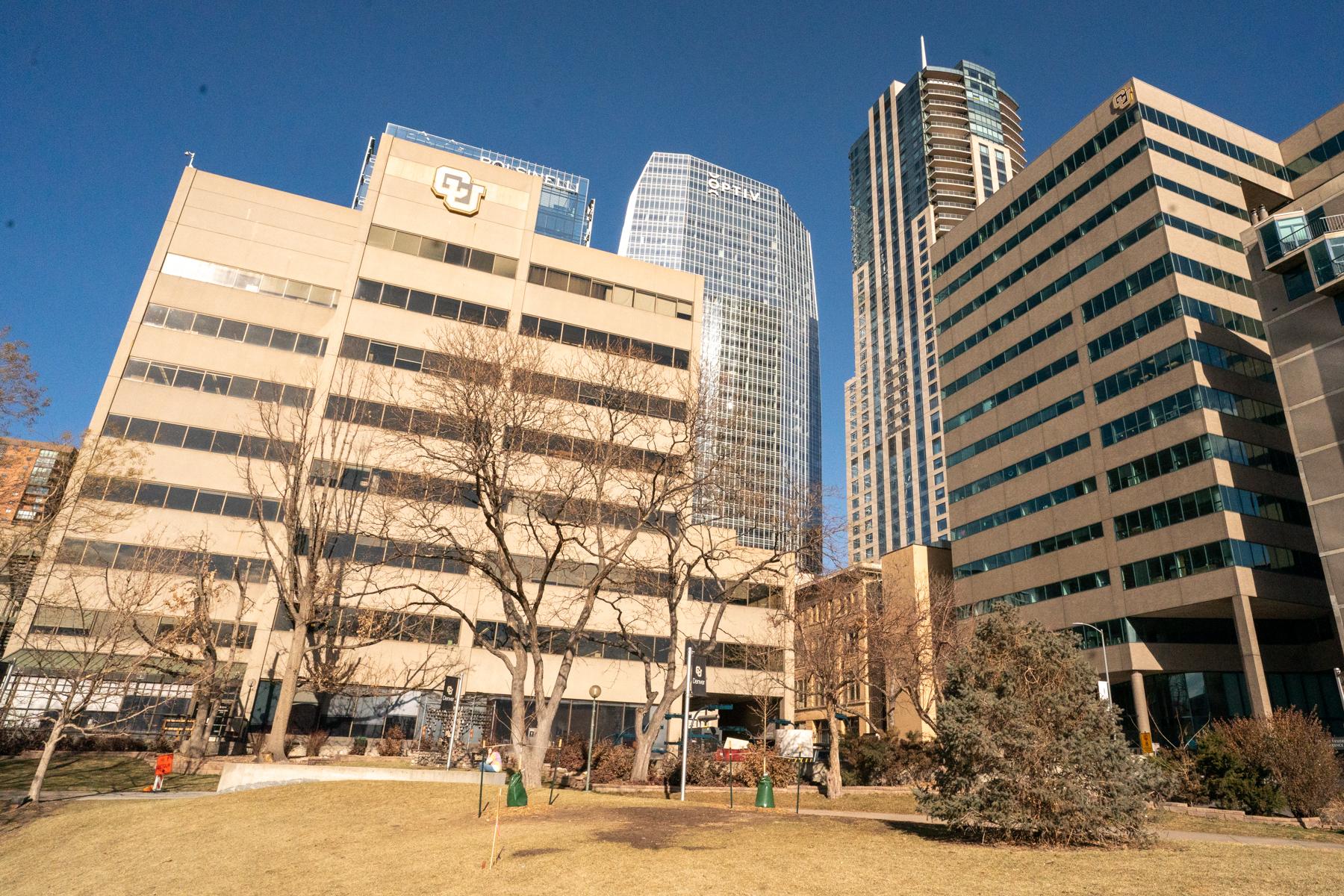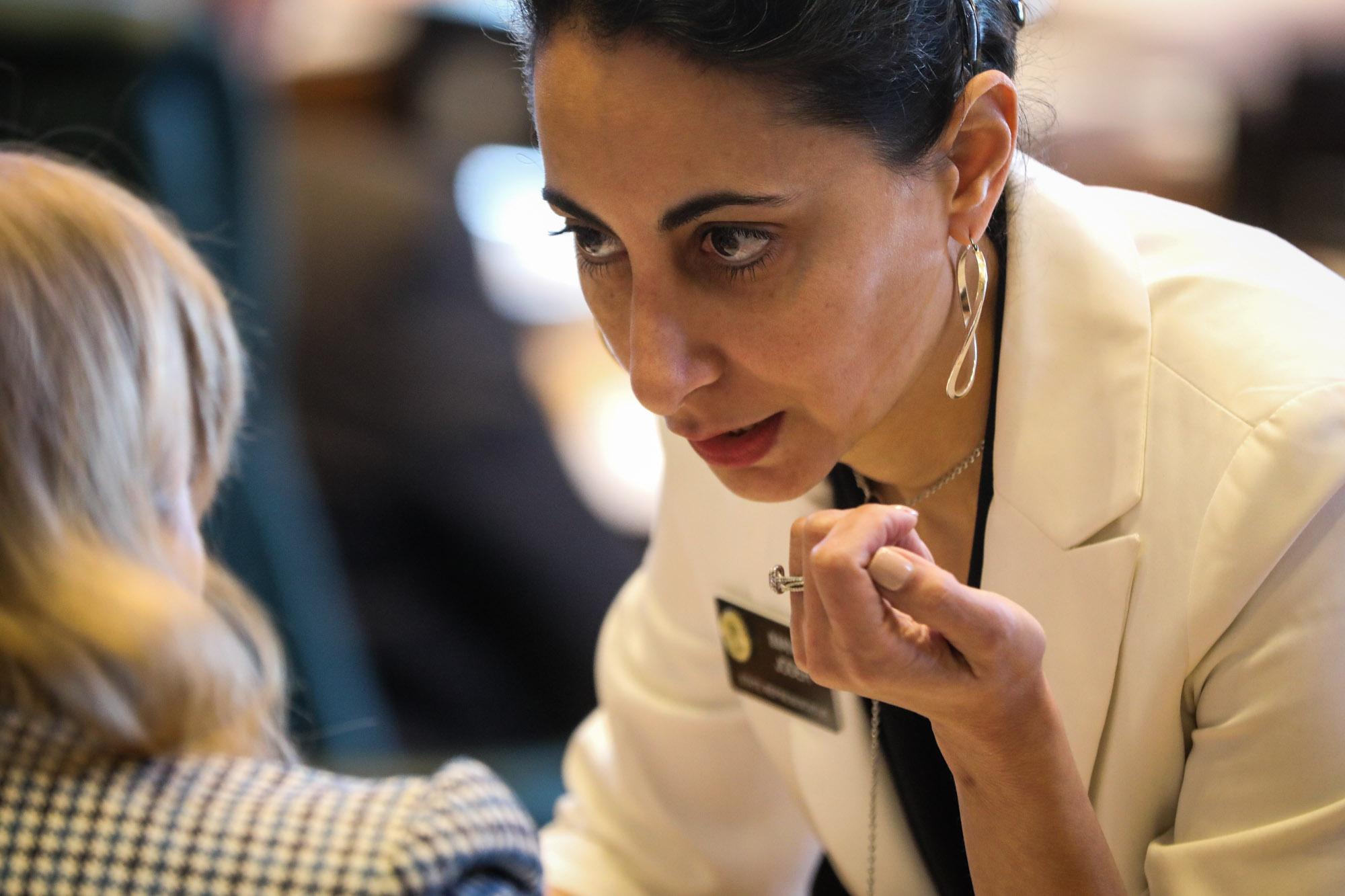
Chloe Scull is singing again. She meets her voice instructor and friend Corinne Melon in the offices of the Phamaly Theater Company in Denver.
As Scull hits some high notes, Melon, at the piano, gives encouragement.
“There you go.”
They run through vocal exercises. It’s a hot, smoggy day, and Scull feels it.
“Yeah, I'm super sensitive to air quality. I'm super sensitive to, like, really dramatic temperature shifts,” she said, with a laugh. “The ozone gets me. Everything, I’m sensitive to everything now.”
It’s a new normal.
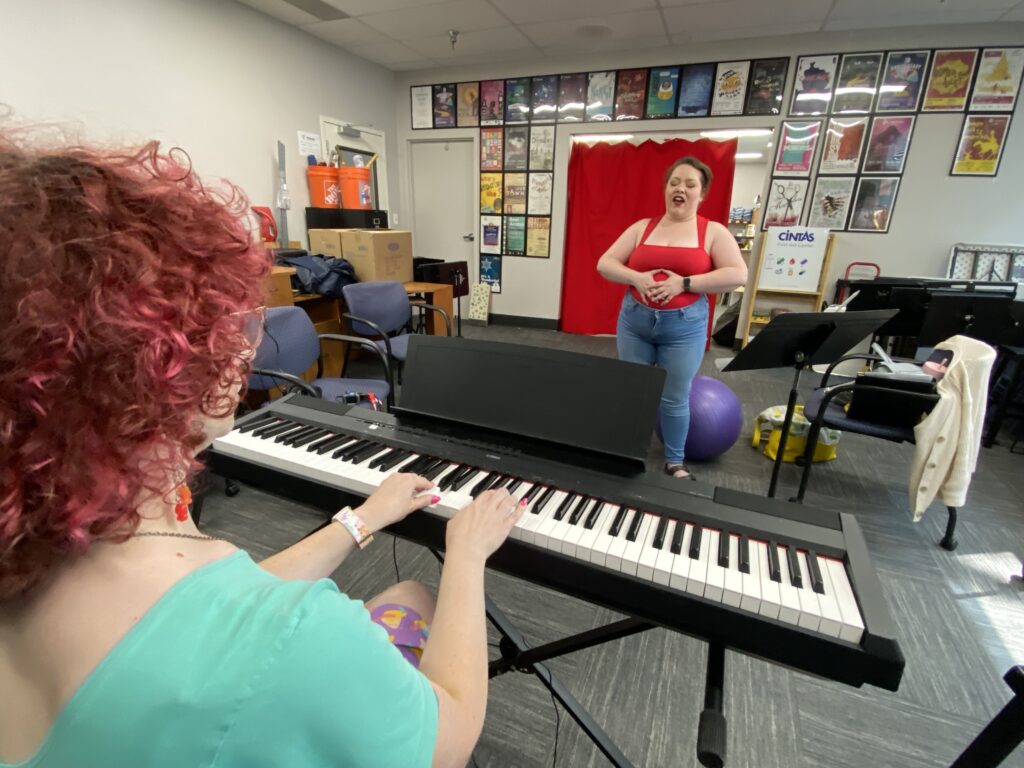
For years, she’d been pursuing a life in opera, building her career as a soprano.
She’d earned a degree in voice performance with an emphasis in opera from the University of Denver’s Lamont School of Music.
As she gained momentum, Scull performed a number of roles: Adele in “Die Fledermaus,” Monica in “The Medium,” the Baritone trio member in “Trouble in Tahiti,” Leporella in “Giovanna’s, and Ear of Corn in “Into the Woods.”
But in 2020, like for many people, the world had other plans. The pandemic hit, and Scull caught the coronavirus, which led to long COVID, a constant, unwelcome, companion.
“There were days where I didn't know if I would ever be able to sing again or do normal people things again,” she said. “Even leaving the house at all was fundamentally exhausting.”
She’d been teaching, doing voice lessons. But when she got sick, she had trouble breathing, she couldn’t sleep and would wake up with a monstrous headache, dizziness, a racing heart and a tightness in the chest, as she wrote in her diary.
“The longer I talk, the worse I feel. That feeling is worse and quicker when I sing. I've never been scared to sing before,” she read.
She works for the state and was able to work remotely. She was never hospitalized but suffered intense, unrelenting exhaustion and brain fog. Years later, her symptoms still hadn’t completely improved and she gave up singing.
“Every time I think I've hit a new peak of exhaustion, I find a new level,” she wrote, months into her long COVID experience.
Another diary entry reflected on a pre-pandemic performance. “That is probably the last time that I will ever memorize or perform, and that's (expletive) hard. And that was from April 25 of 2022.”
She had numerous visits to doctors and tried all kinds of things to feel better. Endless steam baths, mental health therapy, short mindfulness walks. Eventually she and Melon, her voice teacher, started slowly, doing singing and breathing exercises.
“Just experimenting, because there was no research at the time. No one had tried to rehab a voice from Covid,” said Melon, who is the managing director of the Phamaly Theatre Company. “So we were just like, let's experiment and see what we can do.”
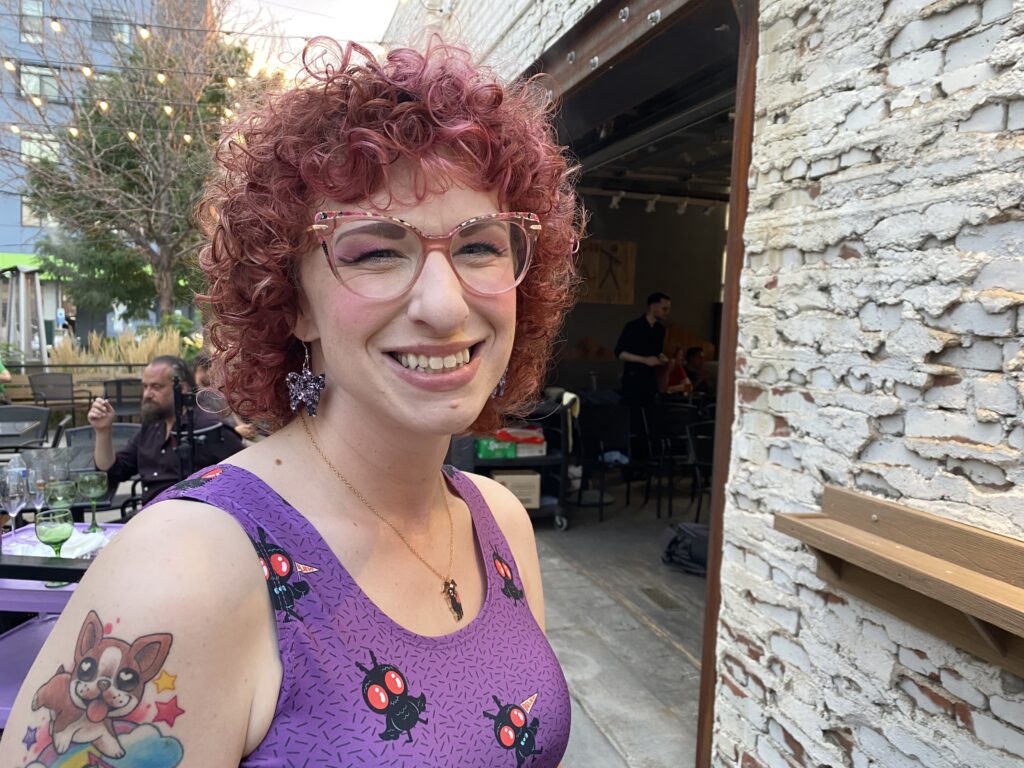
Eventually, Scull was able to start singing and performing again.
“I was kind of just dipping my toe back into ‘can I sustain this level of energy again?’”
There are still lots of COVID questions. This summer it was back in the headlines, with a worldwide summer wave. The president caught it. So did America’s top male sprinter, who was gasping for air after a race at the Paris Olympics.
It’s never gone away for many with long COVID, which may have hit more than 700,000 Colordans, who either still struggle with it or have recovered.
That figure comes from the state’s 2023 report on long COVID that claims about one in five people affected had severe symptoms that “greatly reduce their ability to carry out day-to-day activities.”
Roughly five percent of adults in the U.S. said they currently have long COVID, according to a U.S. Census Bureau survey. Women are more likely to develop it, according to the CDC.
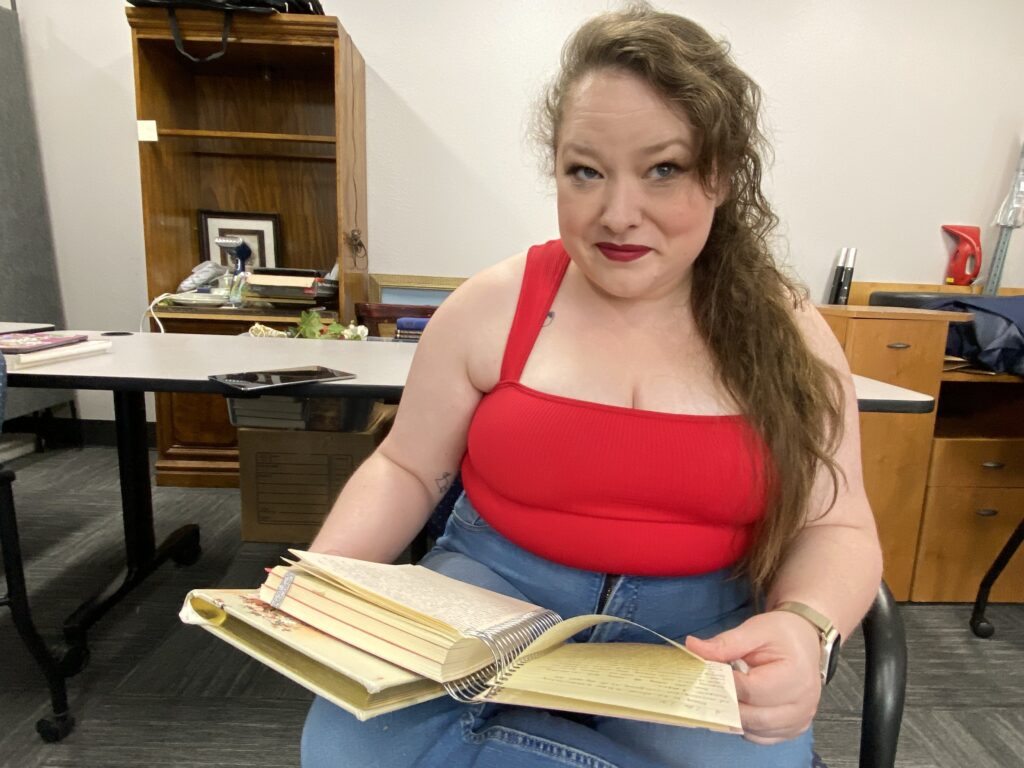
For Scull, her journey has meant a great rearranging of her expectations for her life and career.
“Perseverance, I think, is just really key,” she said. “Whatever it is that you are experiencing, life is still worth it. At the end of the day. Every day you choose to carry on and do things, and I think that's really important.”
Memorizing and singing through a lengthy opera is not in the cards, without some sort of memory aid, like an iPad with lyrics. But she’s made new friends and found a community of support. She knows people who’ve lost limbs to long COVID; a girl she follows on TikTok lost an eye.
“None of that happened to me. I temporarily lost a voice and I found it again and I feel insanely lucky,” she said.

On a recent night, Chloe Scull made her first post-illness return to the stage. It was in an Opera on Tap performance of a show called “On Our Way.” The event was held at a Littleton brew pub and pizzeria called Brewability, which employs adults with developmental disabilities.
“I feel nervous. I'm excited. I feel a little bit like I'm going to throw up,” she said before the show started. “This is the first show that I've done since 2019, so it's a big day.”
She said physically she felt tired and from a memory capacity standpoint she was about 70 percent; but once she started singing, her voice was powerful. Her demeanor was confident. Her music instructor Corinne Melon teared up.
“It's so exciting to see her be able to continue to perform and perform even better than she did before,” said Melon, “and be able to be an example to other opera singers with disabilities. “

For Scull, it felt good and encouraging to be able to belt it out.
“It is like getting back on a bicycle. I am tired. Managing my tiredness is going to be a thing that I think I'm going to have to deal with for a really long time,” she said. “It feels good to be back on a stage with an audience again.”
And a long way back from where she’s been.
“It feels like a great success to me because it feels like I've worked really, really hard to get to where I am,” she said with a smile.



